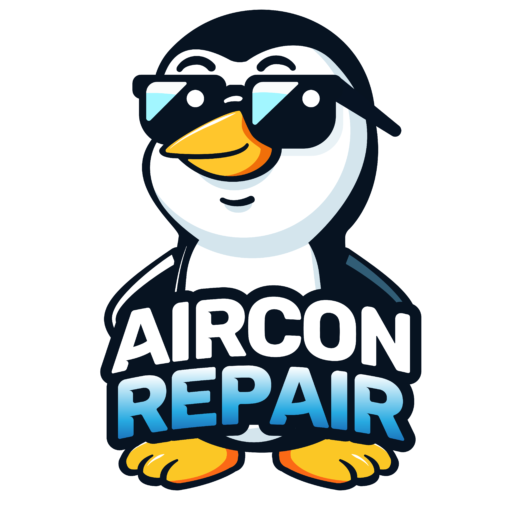An air conditioning unit is crucial for indoor comfort, especially in hot weather. When it fails to cool efficiently, it becomes frustrating and inconvenient. Understanding potential causes can help you troubleshoot issues before they worsen. Common reasons for poor cooling include clogged filters, refrigerant leaks, or a malfunctioning thermostat. Regular maintenance, such as cleaning filters and checking refrigerant levels, can restore performance. If problems persist, professional servicing may be necessary. Addressing these issues promptly ensures your AC runs efficiently, keeping your space cool and comfortable. Below are key reasons your AC may not be cooling and how to fix them.
Common Issues Why Your Air Conditioning Unit Is Not Cooling
This frustrating issue can stem from various causes, including dirty filters, refrigerant leaks, or thermostat problems. Understanding these common AC issues can help you diagnose the problem quickly and take action. Let’s explore why your AC isn’t cooling and how to restore comfort to your space.
1. Thermostat Issues: The First Thing to Check
One of the most overlooked causes of cooling issues is a faulty or improperly set thermostat. Your air conditioning unit depends on the thermostat to regulate the temperature, so if something is wrong, the entire system may malfunction.
- Incorrect Settings – Check that your thermostat is set to “cool” and not accidentally switched to “heat” or “fan only.” Also, ensure the temperature is set lower than the current room temperature.
- Low or Dead Batteries – If your thermostat is battery-operated, weak or dead batteries could prevent it from signaling the air conditioning unit to turn on.
- Faulty Thermostat – If adjusting the settings doesn’t resolve the issue, the thermostat itself may be defective and require recalibration or replacement.
2. Dirty Air Filters: The Silent Cooling Killer
A clogged air filter is one of the most common reasons why an air conditioning unit struggles to cool effectively. Dirty filters restrict airflow, causing the unit to work harder and reducing overall efficiency.
Signs of a Dirty Filter:
- Weak airflow from vents
- Increased energy bills due to system strain
- Dust accumulation around vents
- Unusual noises from the AC system
3. Refrigerant Problems: The Cooling Agent at Risk
Refrigerant is essential for cooling, and if your air conditioning unit has low refrigerant levels or a leak, it won’t cool effectively.
Signs of Refrigerant Issues:
- Warm air blowing from vents – The air conditioning unit may turn on but fail to cool properly.
- Hissing or bubbling noises – This could indicate a refrigerant leak.
- Ice buildup on refrigerant lines – A sign of improper refrigerant levels.
4. Blocked or Dirty Condenser Unit
Your air conditioning unit’s outdoor condenser plays a crucial role in expelling heat. If it becomes blocked by dirt, leaves, or other debris, the cooling process is hindered.
Signs of a Blocked Condenser:
- The unit runs but doesn’t cool effectively
- Overheating or frequent system shutdowns
- Unusual noises from the outdoor unit
5. Electrical Issues: Power Problems That Halt Cooling
Electrical faults can disrupt the functionality of an air conditioning unit, preventing it from cooling properly.
Common Electrical Issues:
- Blown fuses or tripped circuit breakers – Your unit may fail to power on if the breaker has tripped.
- Damaged or corroded wiring – Faulty electrical components can prevent proper system operation.
6. Frozen Evaporator Coils: A Common Cause of Weak Cooling
Frozen evaporator coils can severely limit cooling efficiency. This issue often stems from restricted airflow or refrigerant problems.
Signs of Frozen Coils:
- Ice forming on the indoor unit
- Weak or warm air flow from vents
- Water leakage around the indoor unit
7. Compressor Malfunction: The Heart of the AC System
The compressor is responsible for circulating refrigerant throughout the system. If it fails, the entire cooling process stops.
Signs of Compressor Issues:
- The unit runs but doesn’t cool
- Loud noises or vibrations from the outdoor unit
- Overheating or system shutdowns
8. Ductwork Problems: Leaks and Blockages That Steal Cool Air
Even if your air conditioning unit is working correctly, poorly maintained ductwork can prevent cool air from reaching your living spaces.
Signs of Duct Issues:
- Uneven cooling in different rooms
- Whistling sounds from ducts
- Higher energy bills due to air loss
9. Drainage Issues: Water Problems That Impact Performance
Clogged or backed-up drain lines can cause an air conditioning unit to shut down to prevent water damage.
Signs of a Clogged Drain Line:
- Water pooling near the indoor unit
- Moldy or musty odors
- AC shutting off unexpectedly
Additional Tips to Keep Your Air Conditioning Unit Running Efficiently
- Schedule Routine Maintenance – Regular servicing helps prevent breakdowns and ensures efficiency.
- Use Ceiling Fans – Fans help circulate cool air, reducing strain on the AC.
- Seal Windows and Doors – Prevent cool air from escaping by sealing gaps.
- Upgrade to an Energy-Efficient Model – If your unit is over 10 years old, consider an upgrade for better cooling performance.
Conclusion
A well-functioning air conditioning unit is essential for maintaining indoor comfort, especially in hot weather. If your AC is running but not cooling, identifying the root cause is key to restoring its performance. From thermostat issues and dirty filters to refrigerant leaks and compressor malfunctions, several factors can affect cooling efficiency. Regular maintenance, such as cleaning filters, checking refrigerant levels, and ensuring proper airflow, can prevent many of these problems. If troubleshooting doesn’t resolve the issue, professional servicing may be necessary to diagnose and repair complex faults. Taking proactive steps, like scheduling routine maintenance and upgrading to an energy-efficient model, can enhance cooling performance and reduce energy costs. By addressing these issues promptly, you can ensure your AC operates efficiently, keeping your home cool and comfortable. If your system continues to struggle, don’t hesitate to contact an HVAC professional for expert assistance in restoring optimal cooling.
